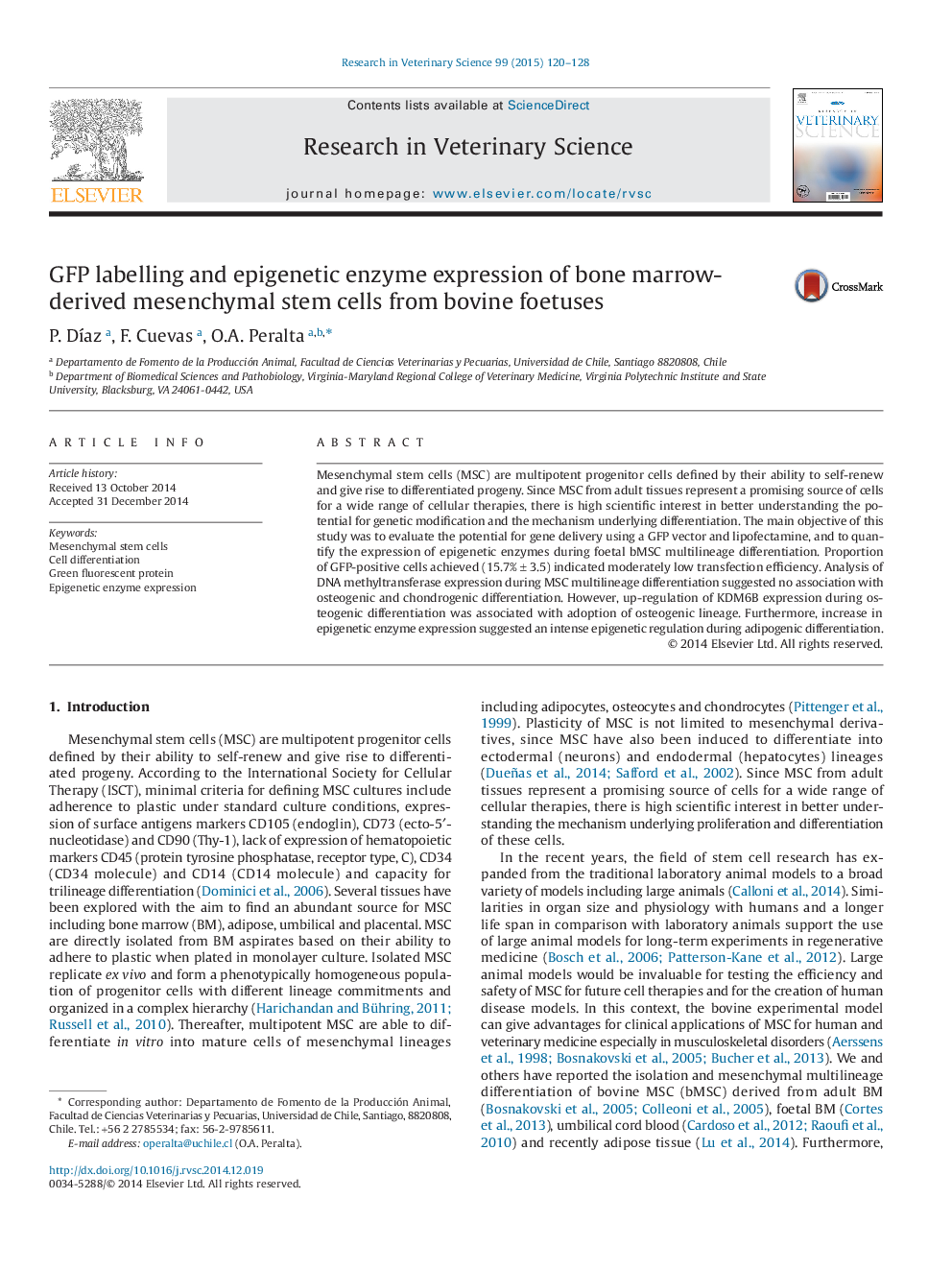| Article ID | Journal | Published Year | Pages | File Type |
|---|---|---|---|---|
| 2454871 | Research in Veterinary Science | 2015 | 9 Pages |
•We evaluated the potential for gene delivery in bMSC using a GFP plasmid.•We quantified the expression of epigenetic enzymes during bMSC differentiation.•GFP-positive cells achieved indicated a moderately low transfection efficiency.•KDM6B expression was associated with adoption of osteogenic lineage.•Epigenetic enzyme profile in adipogenesis suggested intense epigenetic regulation.
Mesenchymal stem cells (MSC) are multipotent progenitor cells defined by their ability to self-renew and give rise to differentiated progeny. Since MSC from adult tissues represent a promising source of cells for a wide range of cellular therapies, there is high scientific interest in better understanding the potential for genetic modification and the mechanism underlying differentiation. The main objective of this study was to evaluate the potential for gene delivery using a GFP vector and lipofectamine, and to quantify the expression of epigenetic enzymes during foetal bMSC multilineage differentiation. Proportion of GFP-positive cells achieved (15.7% ± 3.5) indicated moderately low transfection efficiency. Analysis of DNA methyltransferase expression during MSC multilineage differentiation suggested no association with osteogenic and chondrogenic differentiation. However, up-regulation of KDM6B expression during osteogenic differentiation was associated with adoption of osteogenic lineage. Furthermore, increase in epigenetic enzyme expression suggested an intense epigenetic regulation during adipogenic differentiation.
